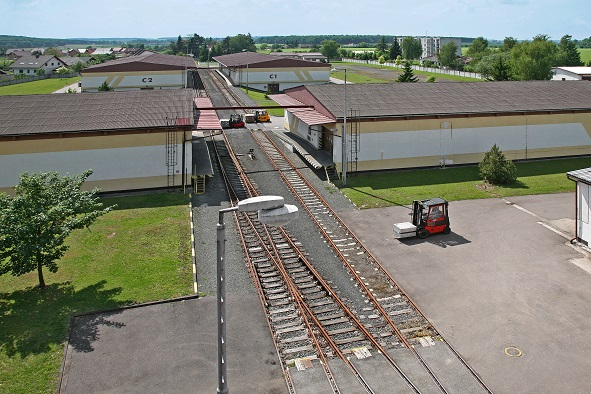 To deal with crisis situations, it is necessary, among other things, to have the means and services which could be used immediately to the benefit of the people struck by a crisis situation. These means and services must be available, in particular, for the emergency survival of people and for the furtherance of the Integrated Rescue System (IRS) and the activities of state administration. This task ensues for the Administration of State Material Reserves (ASMR) from the laws and is elaborated on in the so-called ‘System of Economic Measures for Crisis Situations (SEMCS)’.
To deal with crisis situations, it is necessary, among other things, to have the means and services which could be used immediately to the benefit of the people struck by a crisis situation. These means and services must be available, in particular, for the emergency survival of people and for the furtherance of the Integrated Rescue System (IRS) and the activities of state administration. This task ensues for the Administration of State Material Reserves (ASMR) from the laws and is elaborated on in the so-called ‘System of Economic Measures for Crisis Situations (SEMCS)’.
The persons and the bodies responsible for dealing with crisis situations need to work fast with a large amount of information to ensure quality and speedy decision-making on what means and services to arrange and for whom and need to collect, verify, sort, group together and analyse such information. For this work to be as fast and accurate as possible, various information systems providing ‘Information Support’ in the dealing with crisis situations and, thus, ensuring the necessary means and services are used.
An important part of SEMCS is the sphere of state material reserves (SMR) divided, in terms of the purpose of use, into material reserves (MR), mobilization reserves (MOBR), emergency supplies (ES), and humanitarian help supplies (HHS). The responsibility for procuring, maintaining and funding SMR is one of the three basic competencies of ASMR. One of ASMR’s major activities in this domain is to ensure the purposeful and timely ‘Use of State Material Reserves in Crisis Situations’ for the people and the regions struck by a crisis.
Pursuant to the applicable laws, the resolution of crisis situations is dealt with by the crisis management bodies at all levels of state administration. The principal task of these bodies is to procure material resources according to the needs reported by the affected territories. To this effect, the ‘Competence of Bodies in the Procurement of Material Resources’ is the applicable legislation
